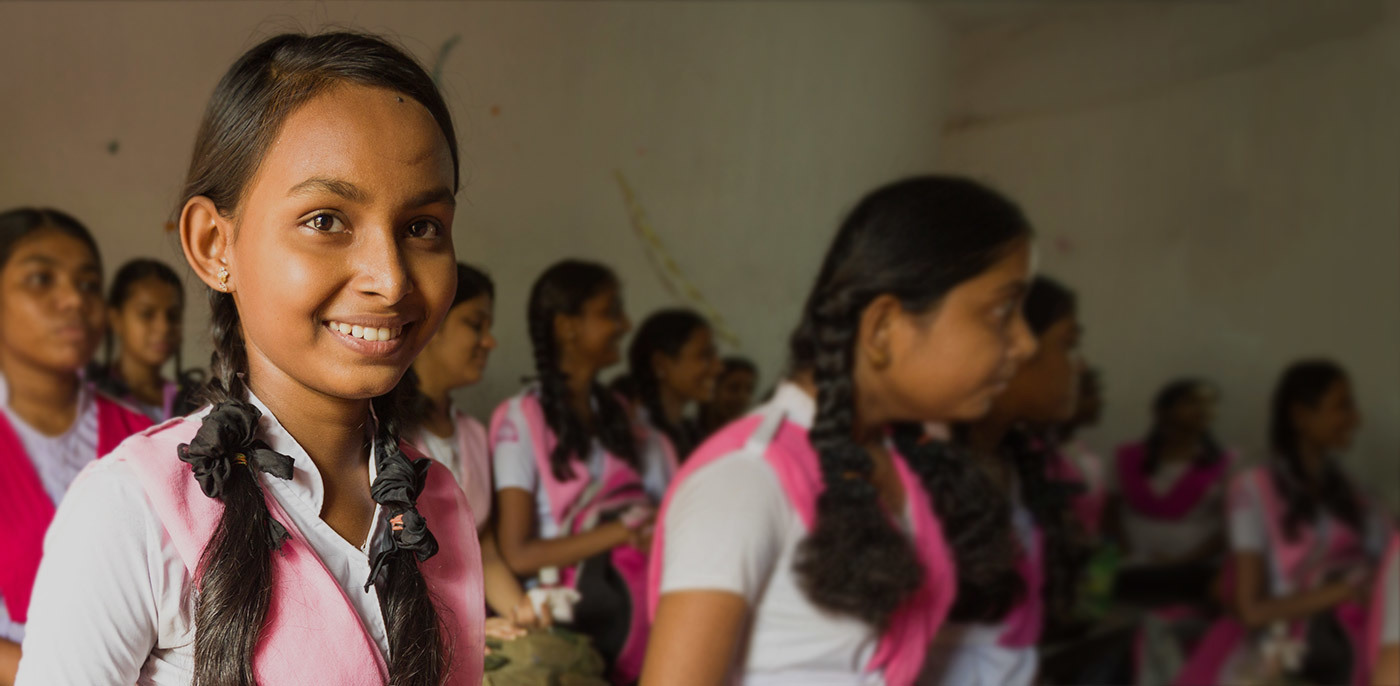Transforming the physical and social environment to give girls the agency to manage menstruation with dignity.


The Challenge
Women and girls across the globe continue to face a broad set of challenges that negatively influence their health, empowerment, and well-being, including the lack of access to menstrual health (MH) solutions. Countless young women do not have access to education on puberty and menstrual health or access to adequate sanitation facilities, sanitary products, or pain management methods to manage their menstruation at school. Unsurprisingly, all of these barriers greatly interfere with girls’ abilities to concentrate in the classroom and feel confident in their bodies, potentially leading to lifelong consequences.
When it comes to school toilets, 86% in Addis Ababa and 91% in Kolkata had no facilities for menstrual hygiene management.
Built Environment
Poor sanitation and toilet insecurity in schools disproportionately affect young women and girls and may contribute to absences from school. Hygienic and discrete disposal solutions for sanitary materials are critical, yet they are rarely taken into account in sanitation programs and designs. Girls in school often undergo the discomfort of not being able to change their pad throughout the school day due to unsafe toilet conditions.
Social Environment
Pervasive stigma around menstruation and a lack of social support from peers, parents, and teachers directly impact young women’s confidence, empowerment, and body literacy. These harmful social norms can result in dropping out of school, early marriage, early first birth, lack of decision-making power within their households, lack of financial independence, and more. Education — in addition to tackling harmful social norms — is the key to empowering girls and young women to achieve their full potential.
What We're Doing

Help young women manage their menstruation at school through improved, MH-friendly sanitation facilities.

Increase levels of knowledge related to menstrual health and puberty.

Increase support in the social ecosystem of young women to shift norms and reduce stigma and include boys, peers, and parents.

Leverage new channels such as mobile phone applications and digital media to better reach girls, young women, and caregivers.
Facilities with Dignity
Splash's menstrual health approach includes both infrastructure and behavior change. Our infrastructure approach focuses on ensuring access to girl-friendly sanitation facilities that are gender-segregated, clean, well-lit, ventilated, and equipped with water for personal hygiene, waste bins for product disposal, doors that lock to ensure privacy, and in-stall components such as hooks and shelves. We factor in broader considerations like the sanitation block location, the location and positioning of the external door, and provision of in-block features such as full-length mirrors to ensure accessibility, functionality, and safety.
Training and Curriculum
We work to increase knowledge, change behaviors, and shift social norms through puberty and menstrual health education. Splash delivers age-appropriate education to children in primary and secondary schools to normalize periods, reduce stigma, and address common misconceptions. We offer additional support to young women through trainings on the practicalities of managing menstruation and maintaining personal hygiene. We aim to build knowledge, foster self-efficacy, and increase confidence and body literacy.
Supportive Social Ecosystem
By delivering complimentary programs that leverage peers, older students, teachers, parents, and other critical stakeholders, we hope to drive normative change in the social ecosystem so menstruation can be seen as it truly is: a normal biological process that signifies health and well-being.
Mazaa, Age 13:
“I understood that [menstruation] is something that I should not be ashamed of. Previously, boy students made fun of girls. But after the training, students started to have knowledge about menstruation, and some started supporting girls.”
Designing our Menstrual Health Program
Splash’s rigorous program design process leverages comprehensive research, stakeholder insights, beneficiary-level inputs, and pilot results to ensure the Splash Menstrual Health Program is culturally and contextually appropriate. When we set out to reimagine and optimize our menstrual health program, we started by listening to and learning from other specialists on menstrual health, gender, and school-based WASH. From these discussions and our formative research, Splash has identified key opportunities to increase our impact.
We expanded our program to include the entire social ecosystem through peer mentoring, parent engagement, male peer engagement, and the promotion of virtual platforms like mobile applications and social media groups to shift norms and increase knowledge. Through our experience with scaled implementation, we have pressure-tested our approach of engaging these social stakeholders and have seen how we have been better able to ensure that every young woman reaches her full potential.